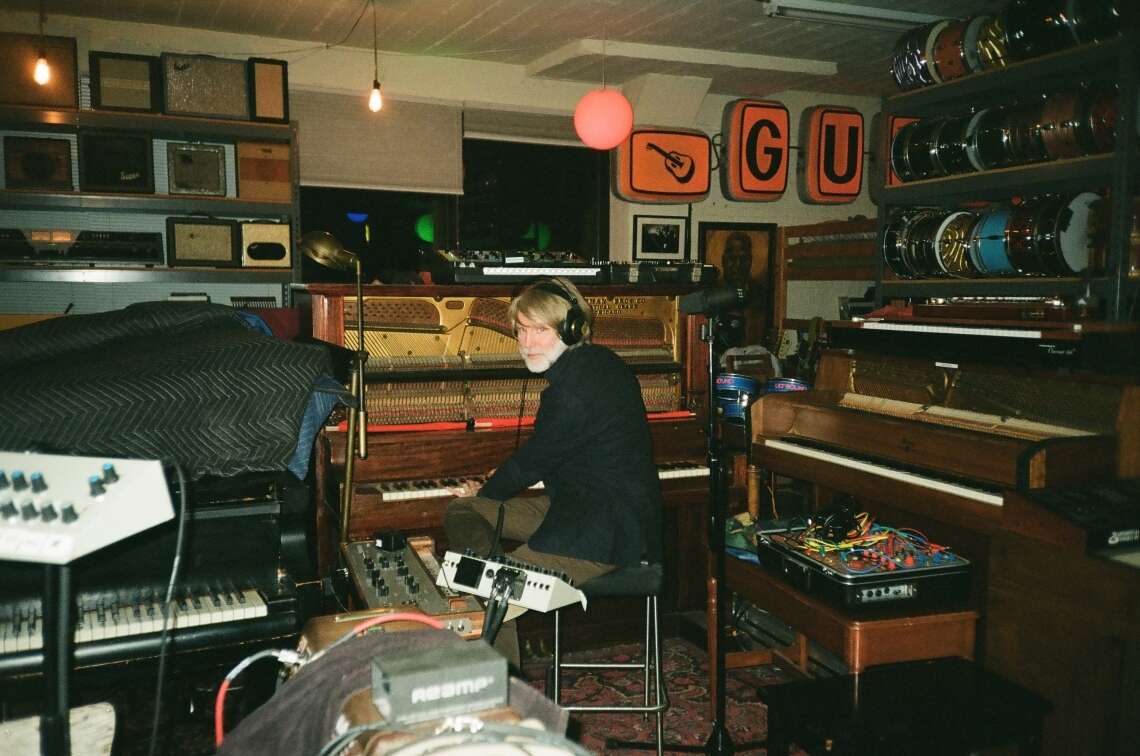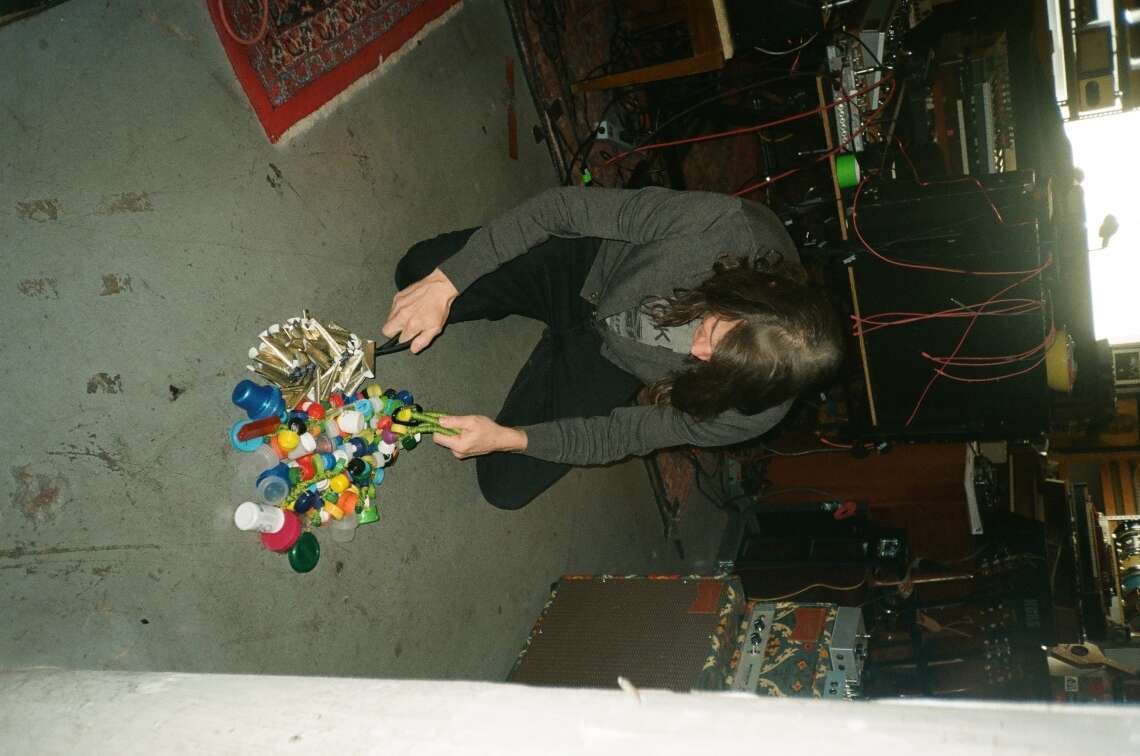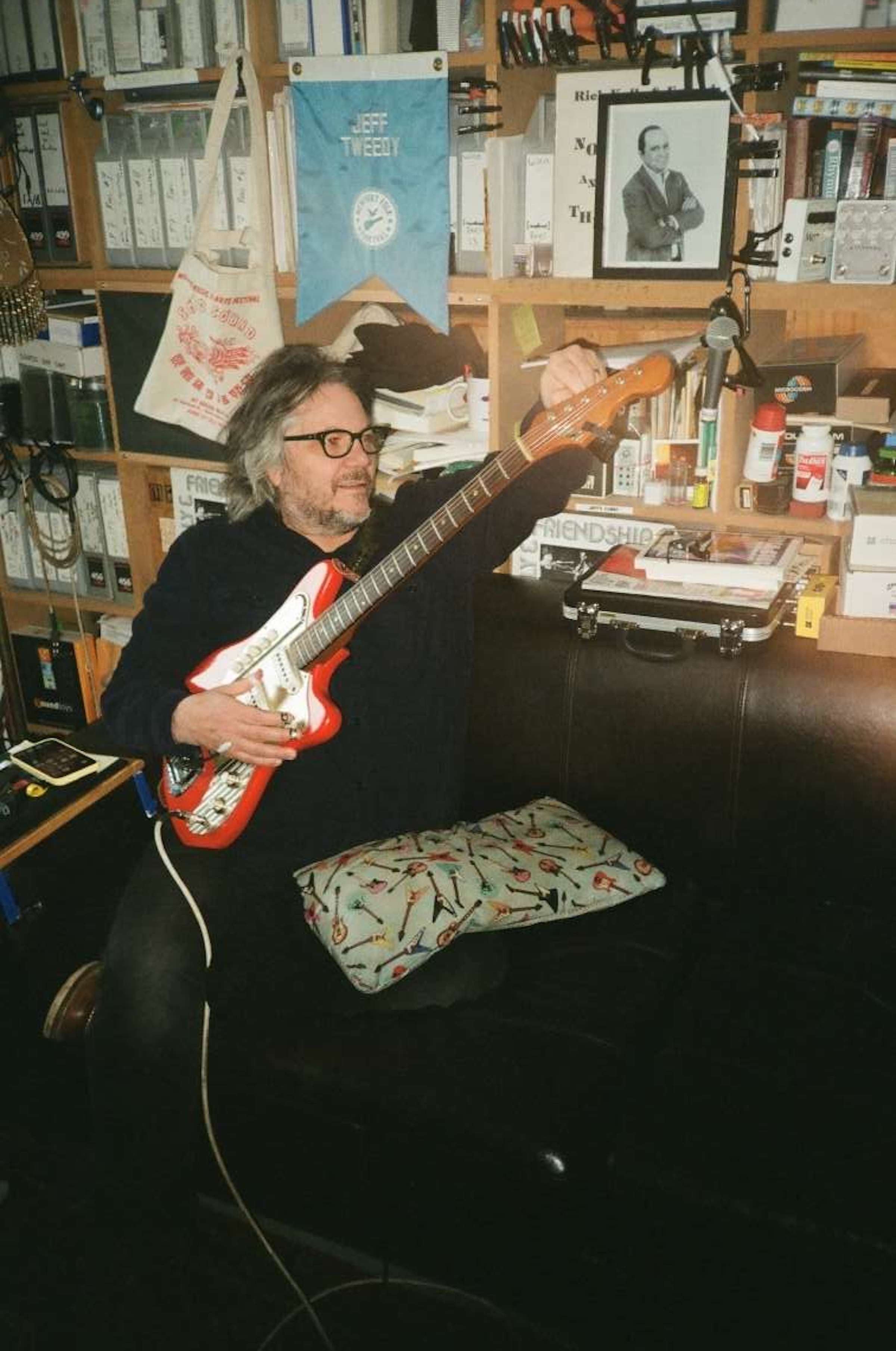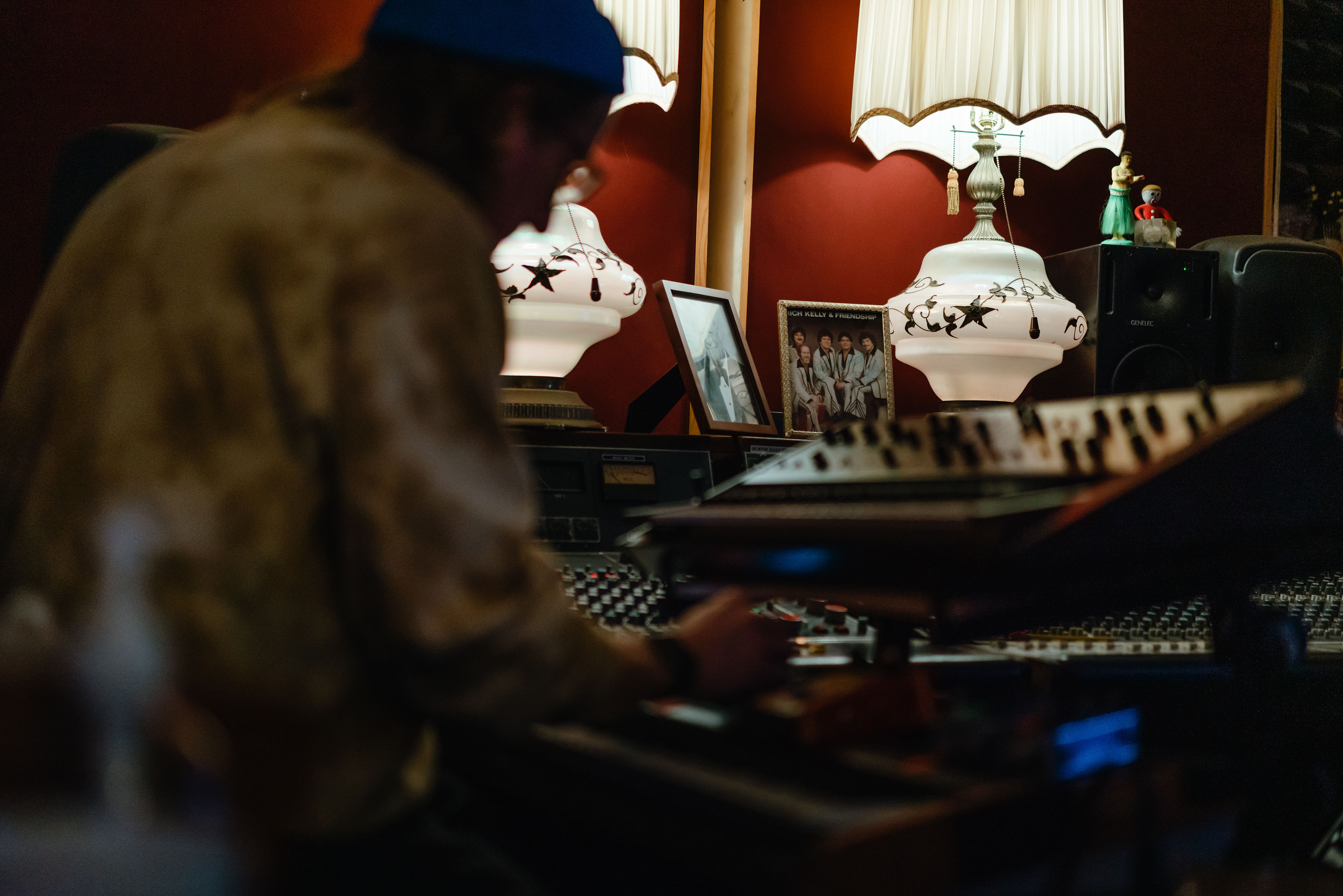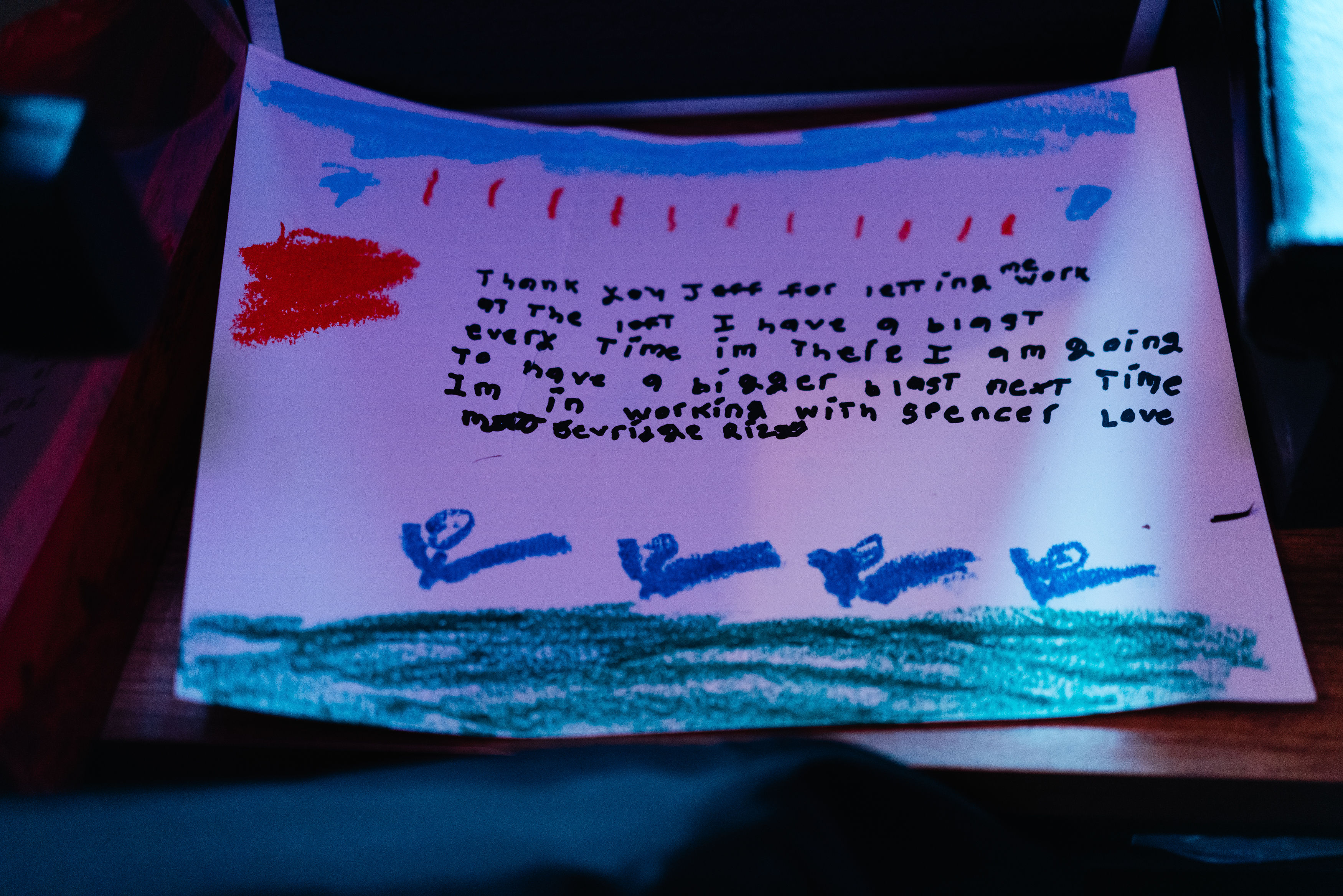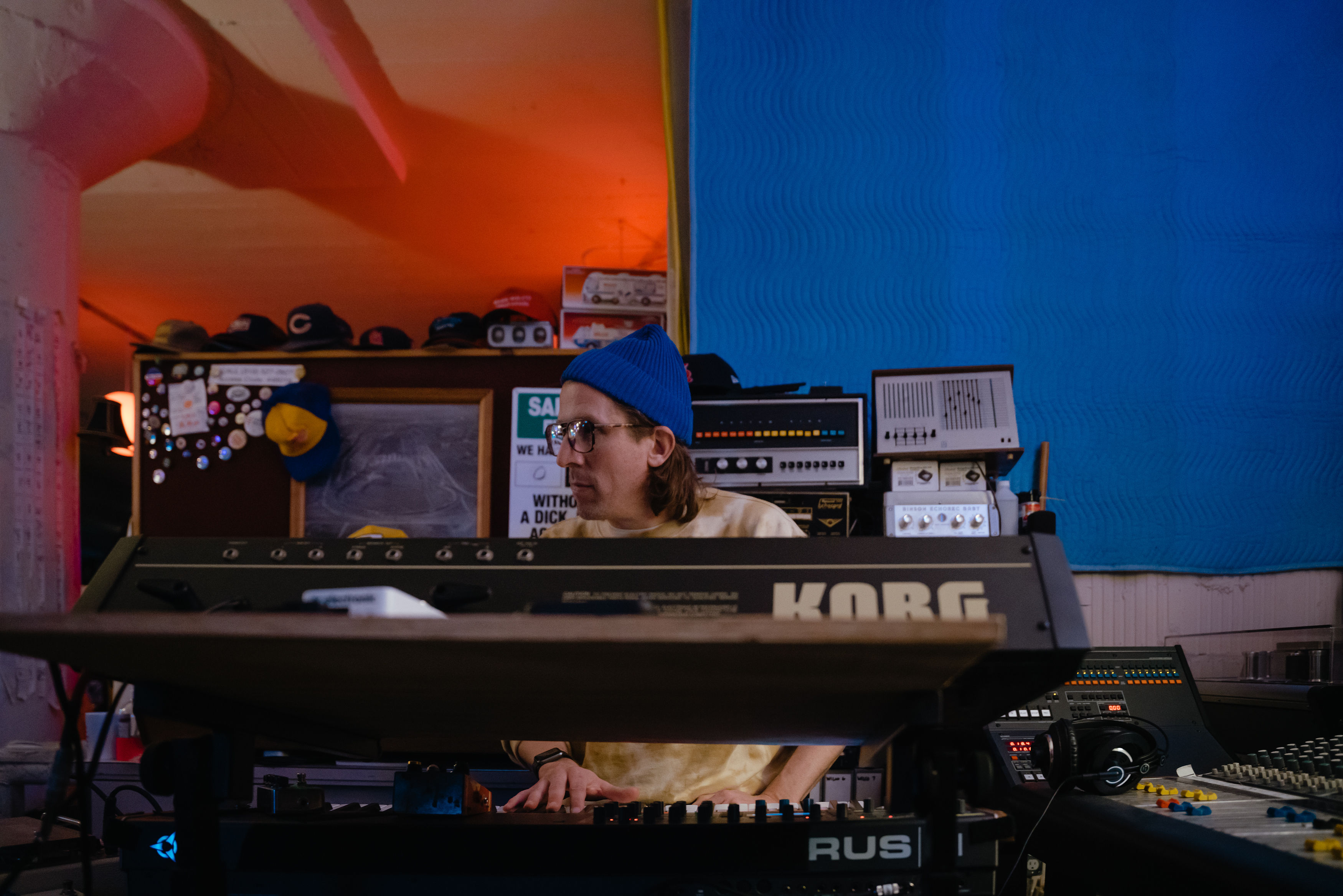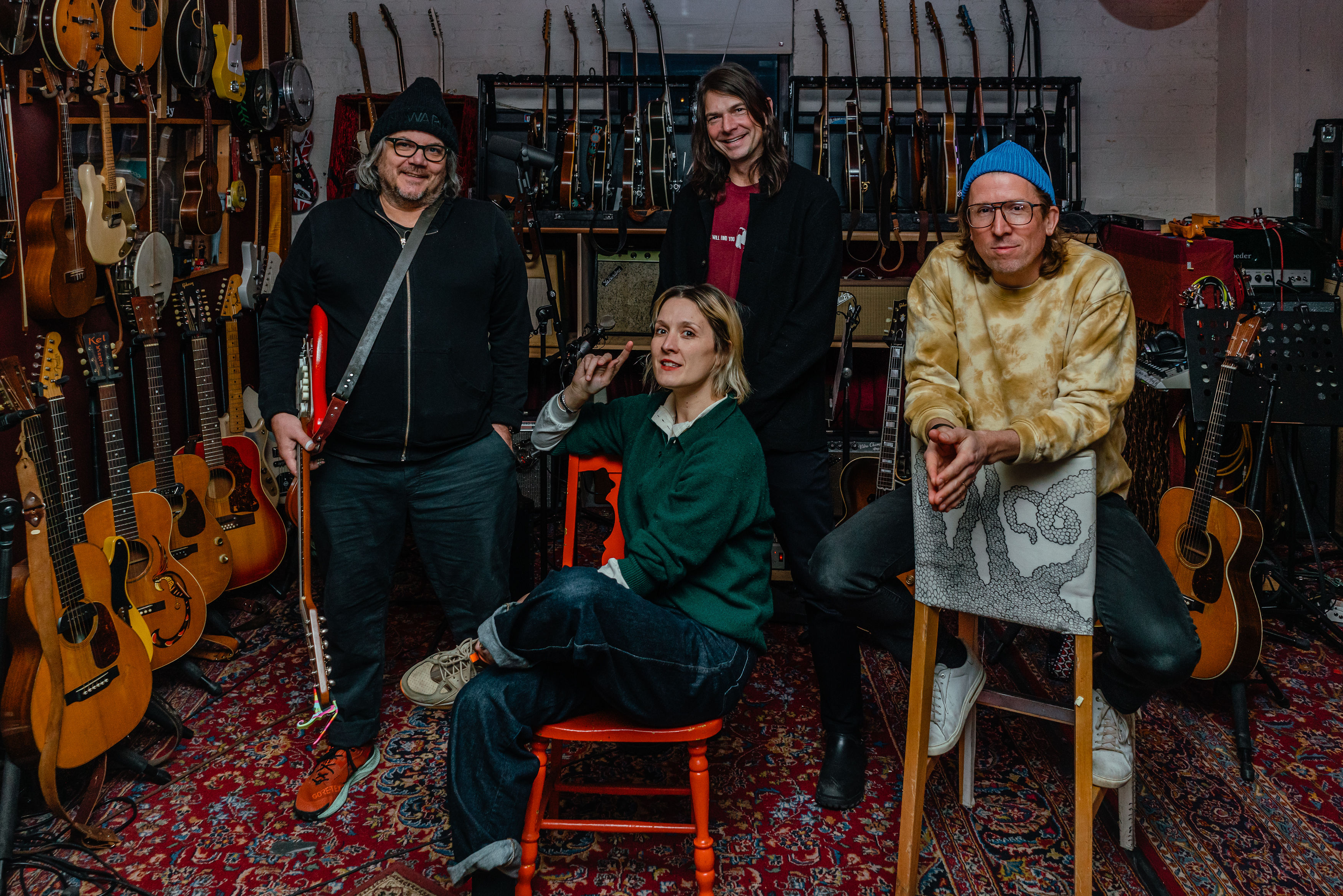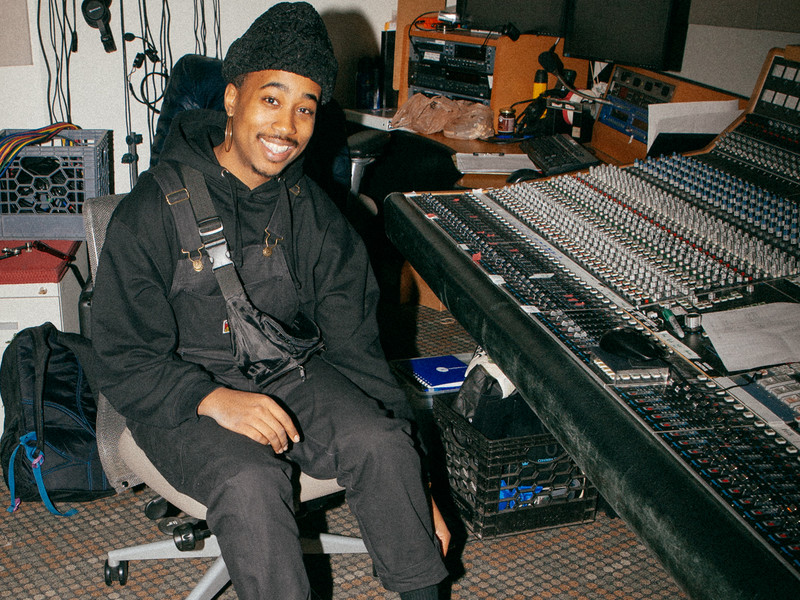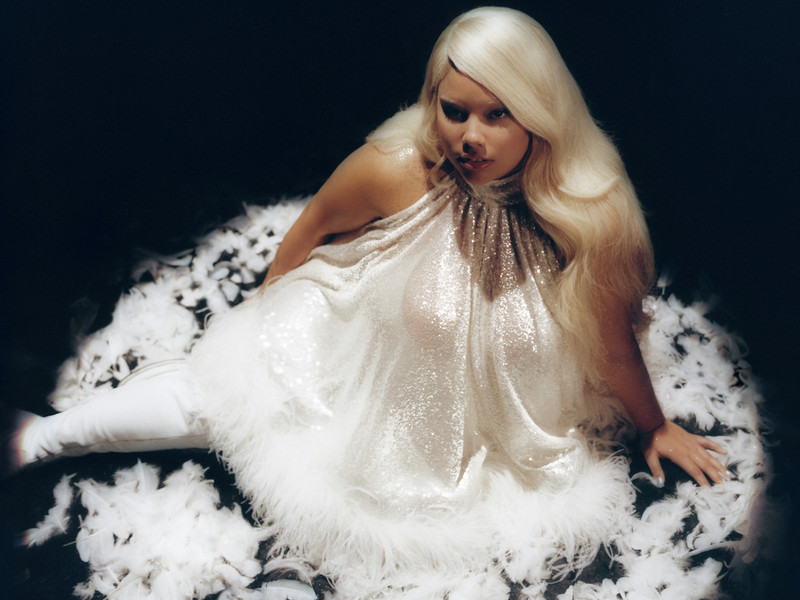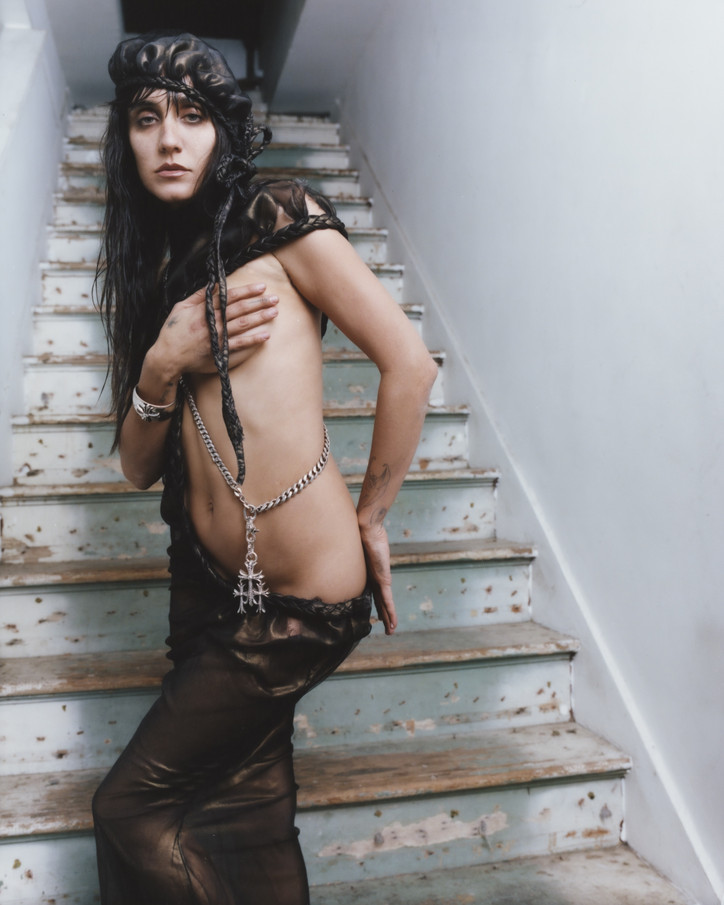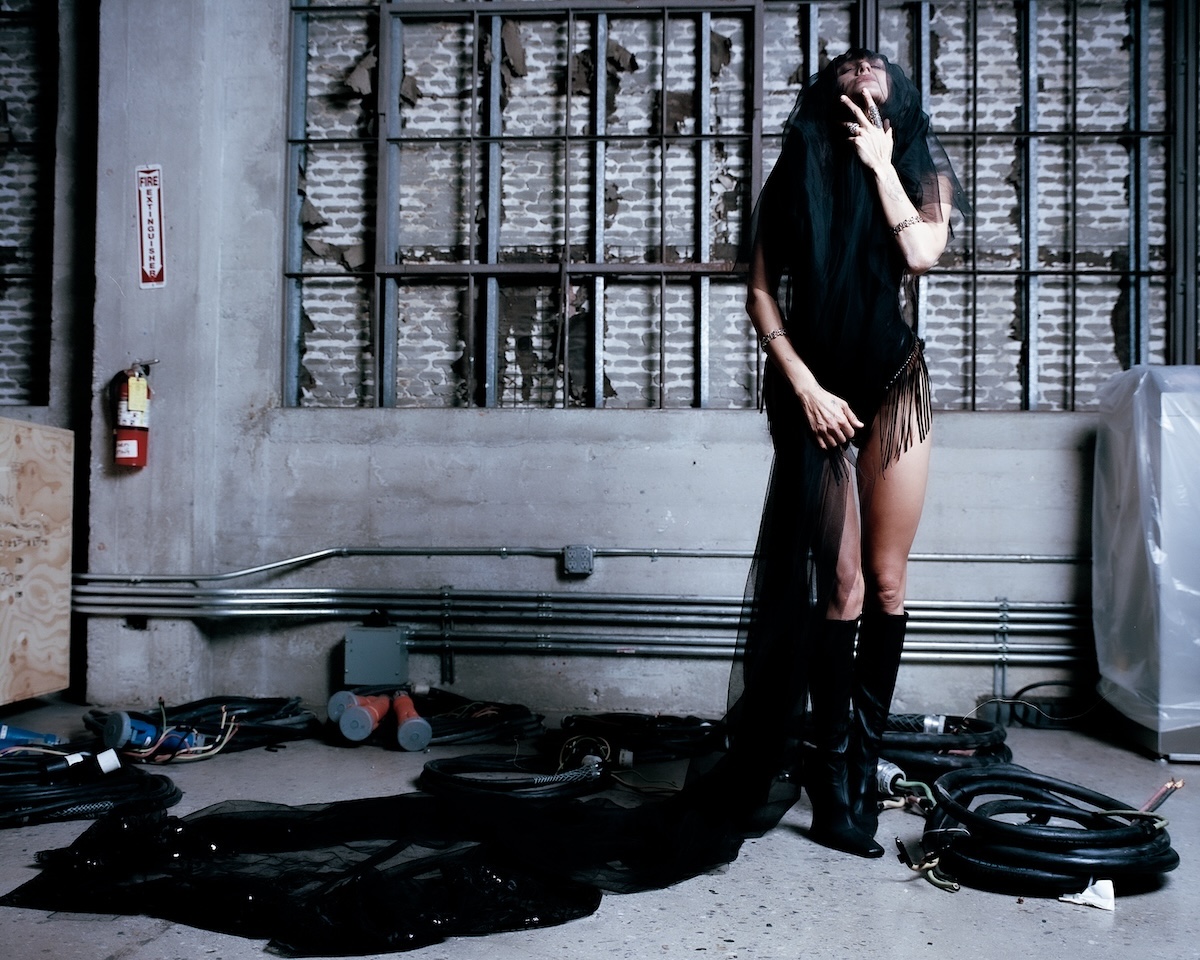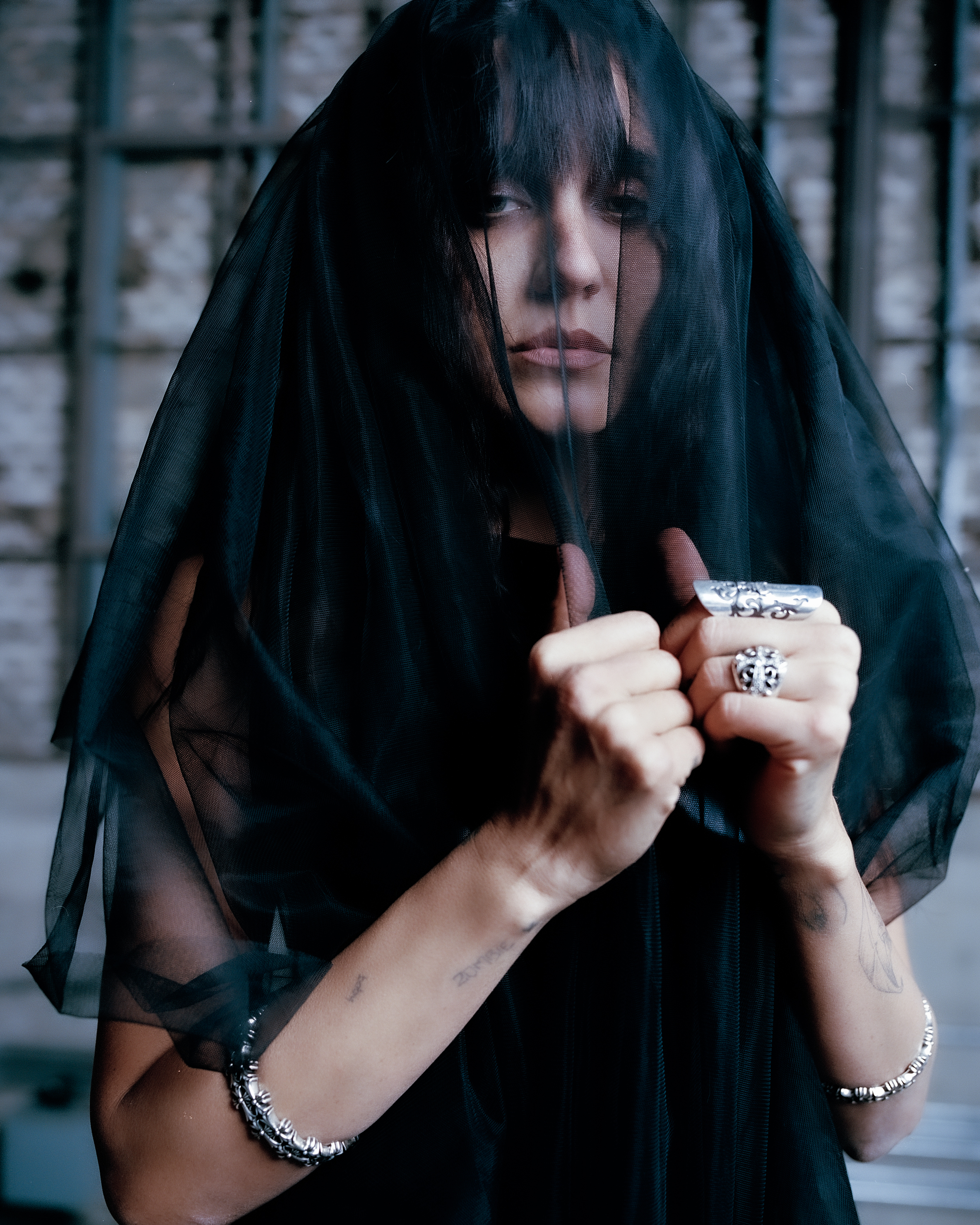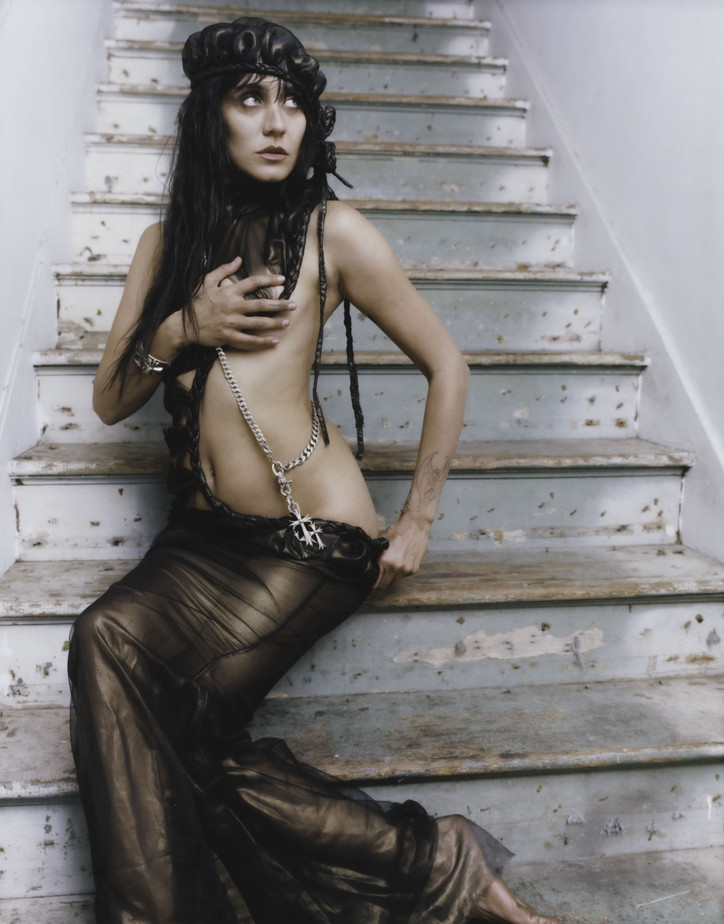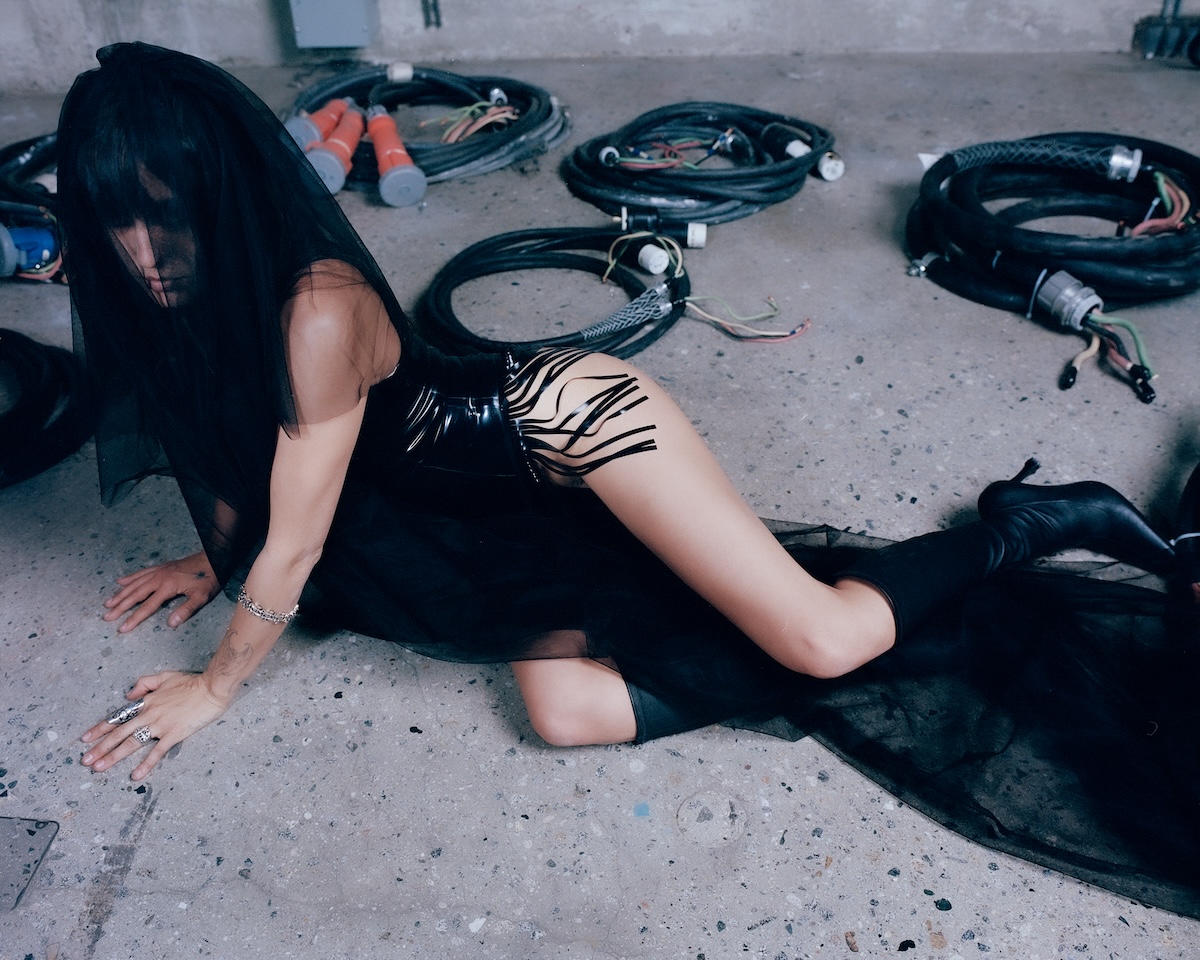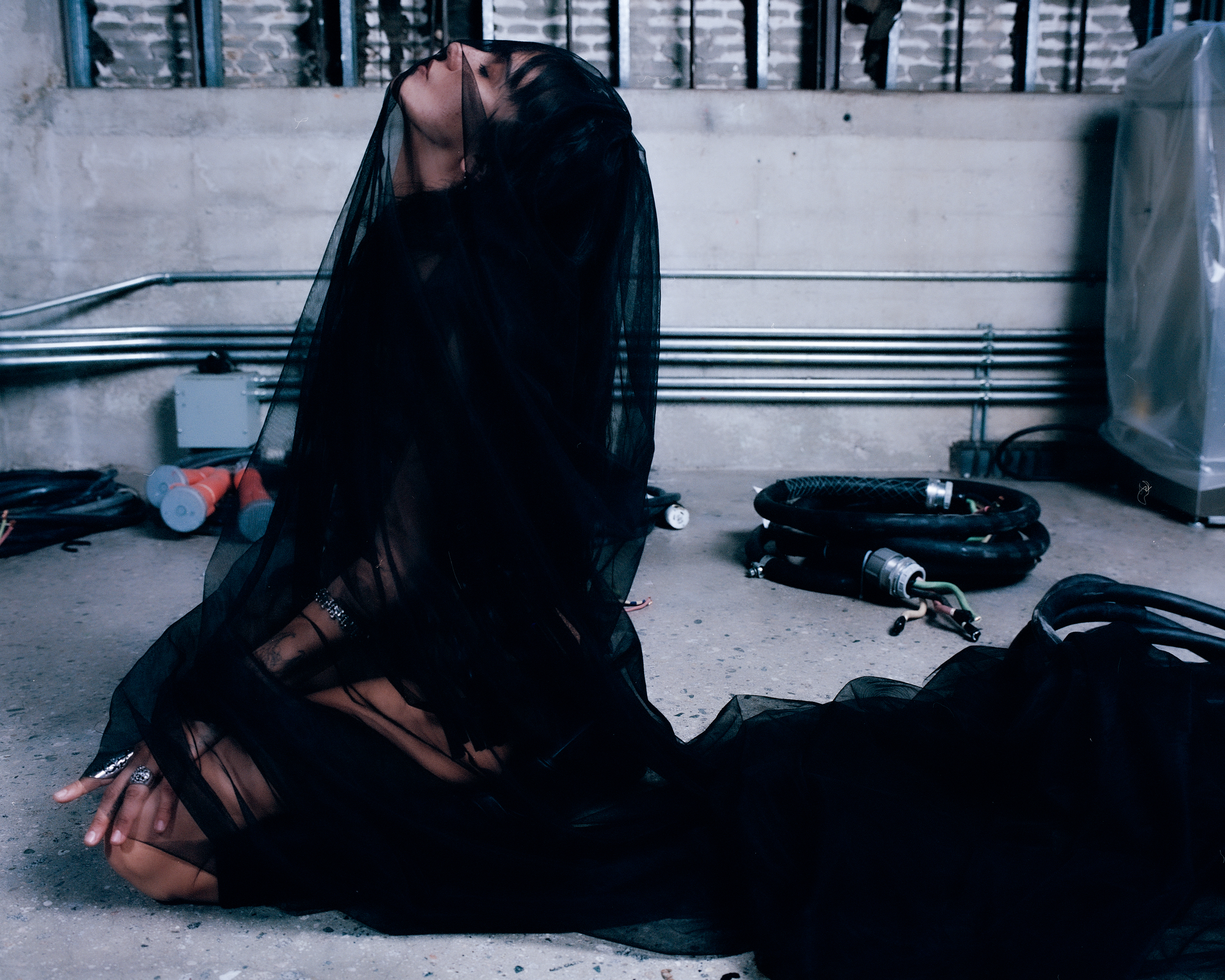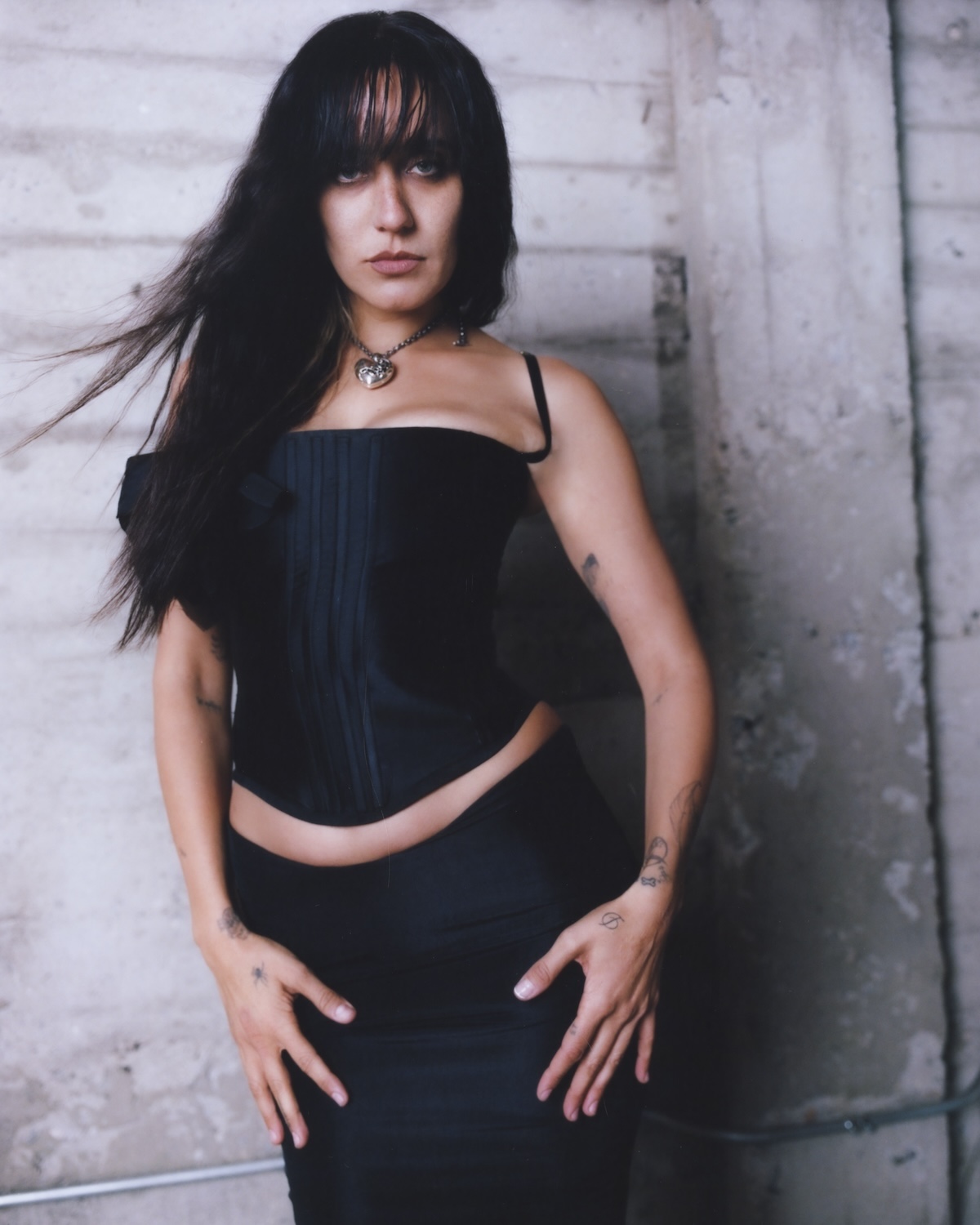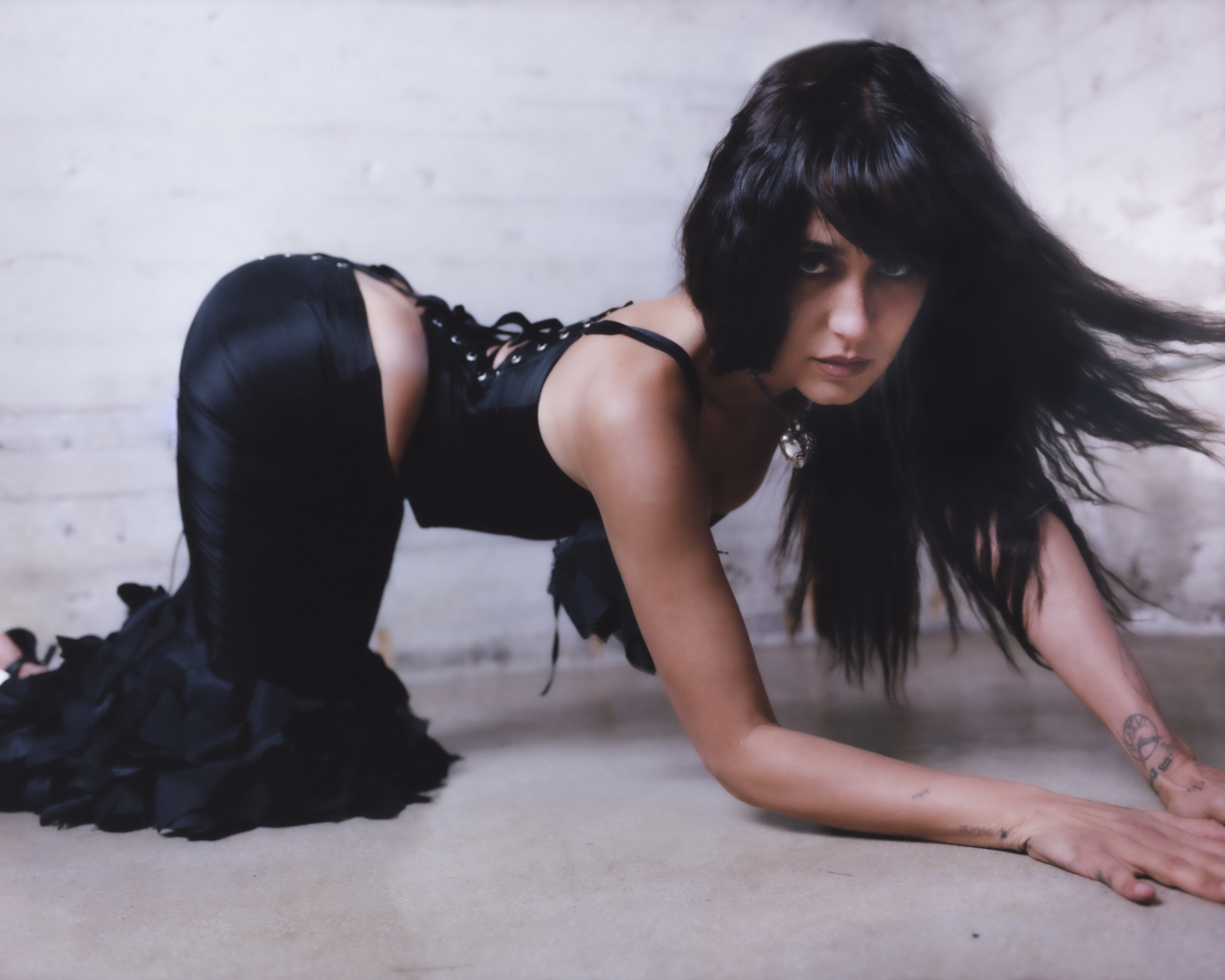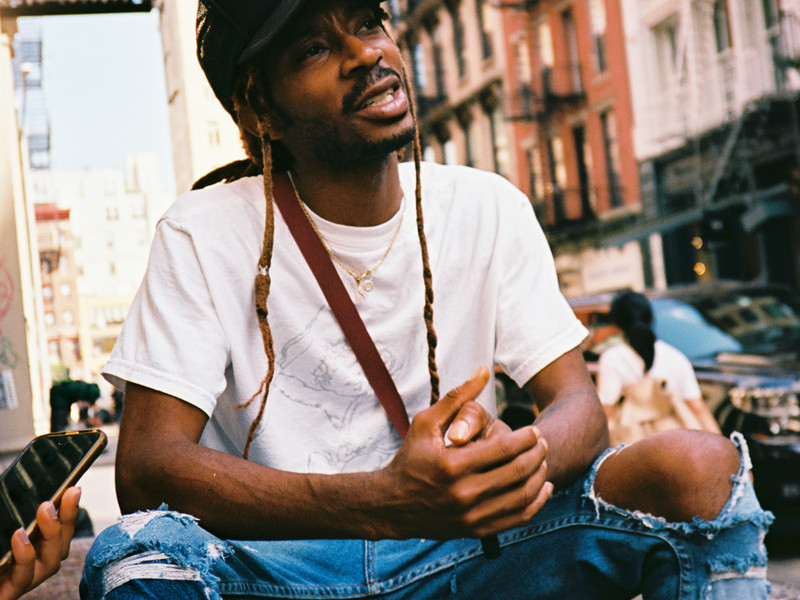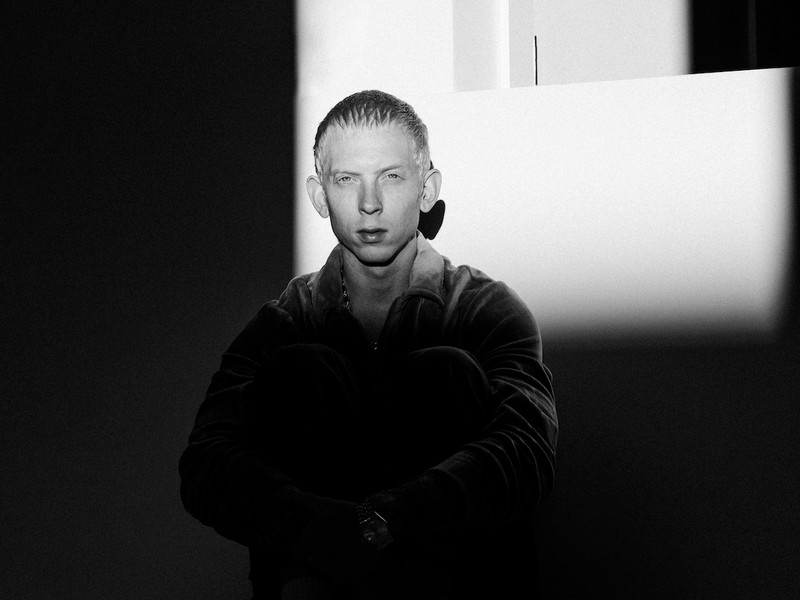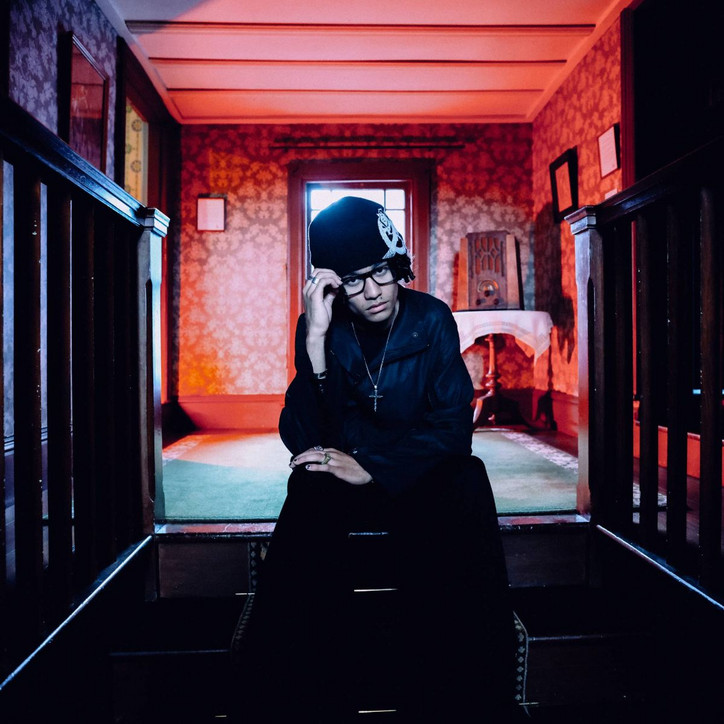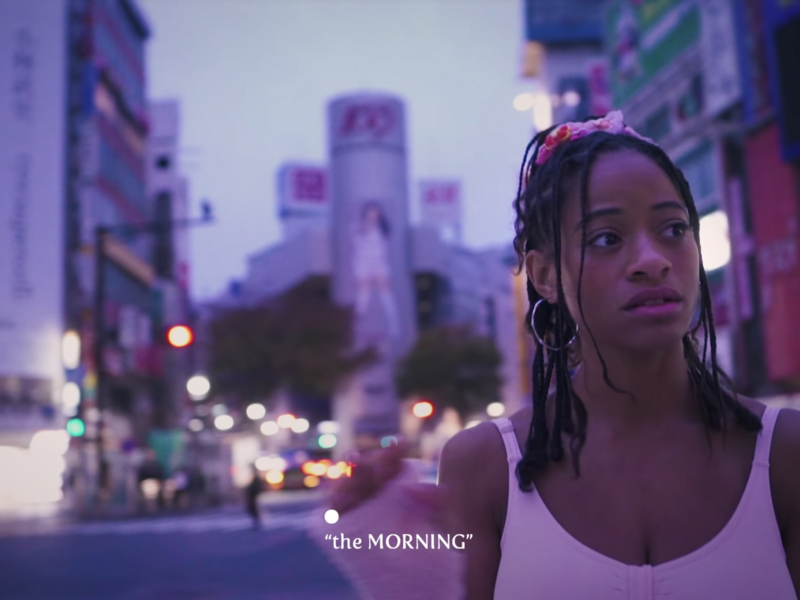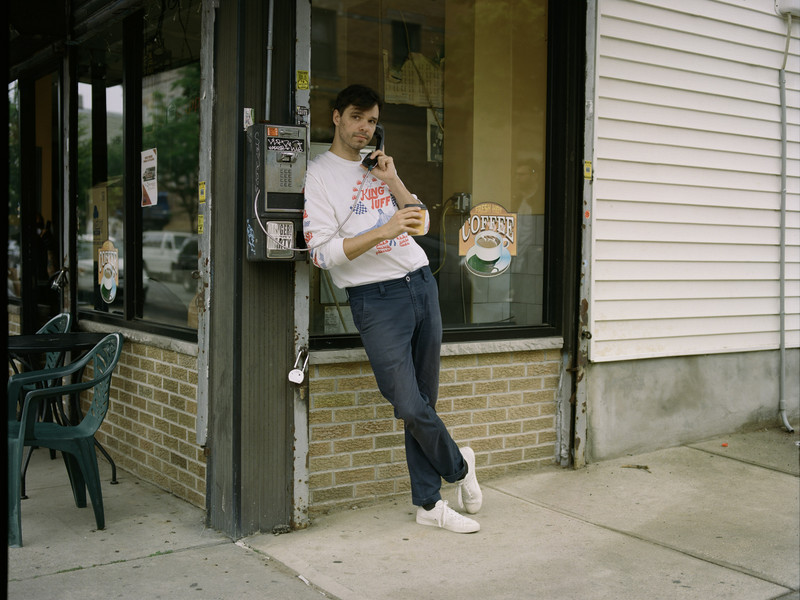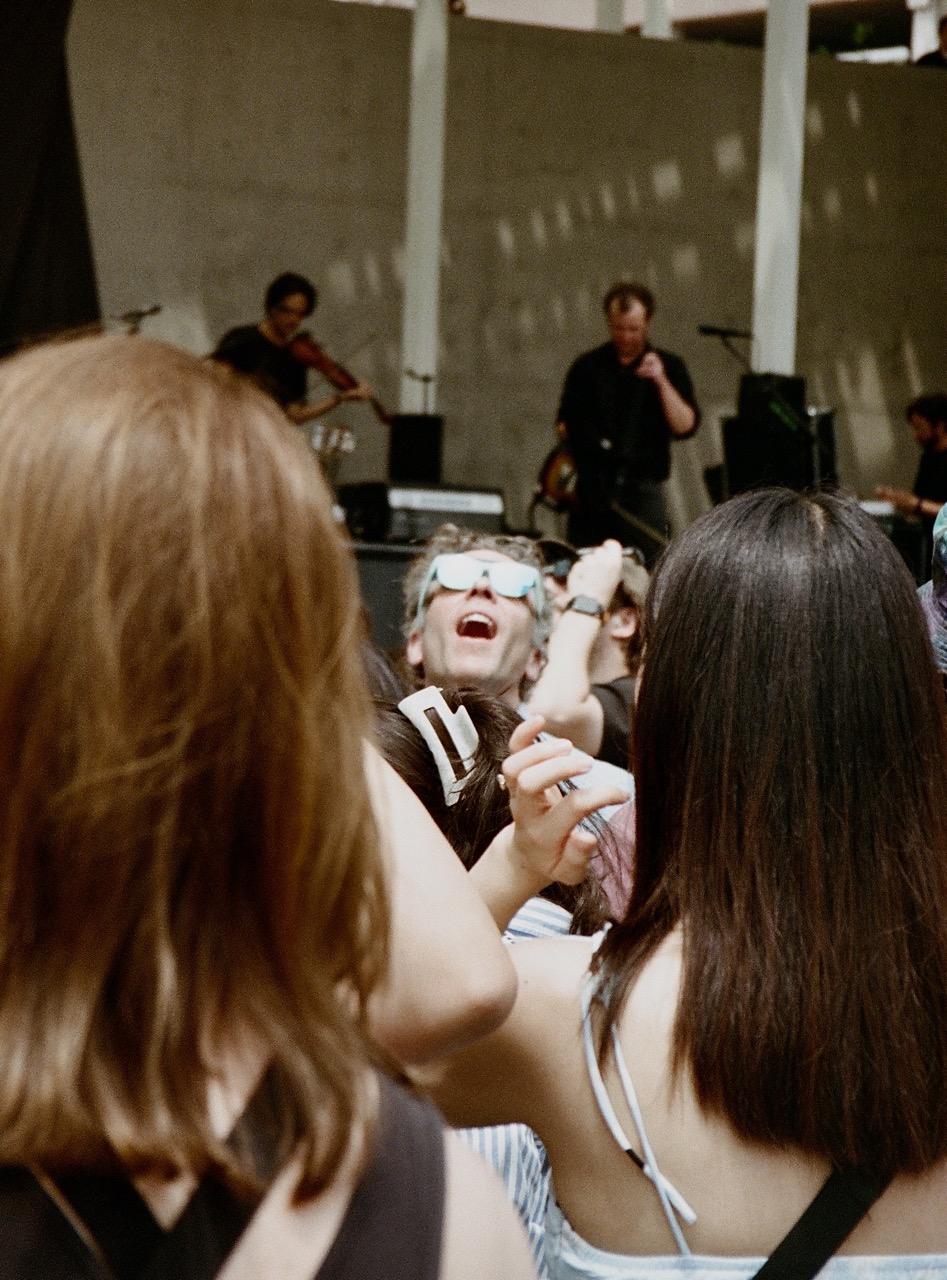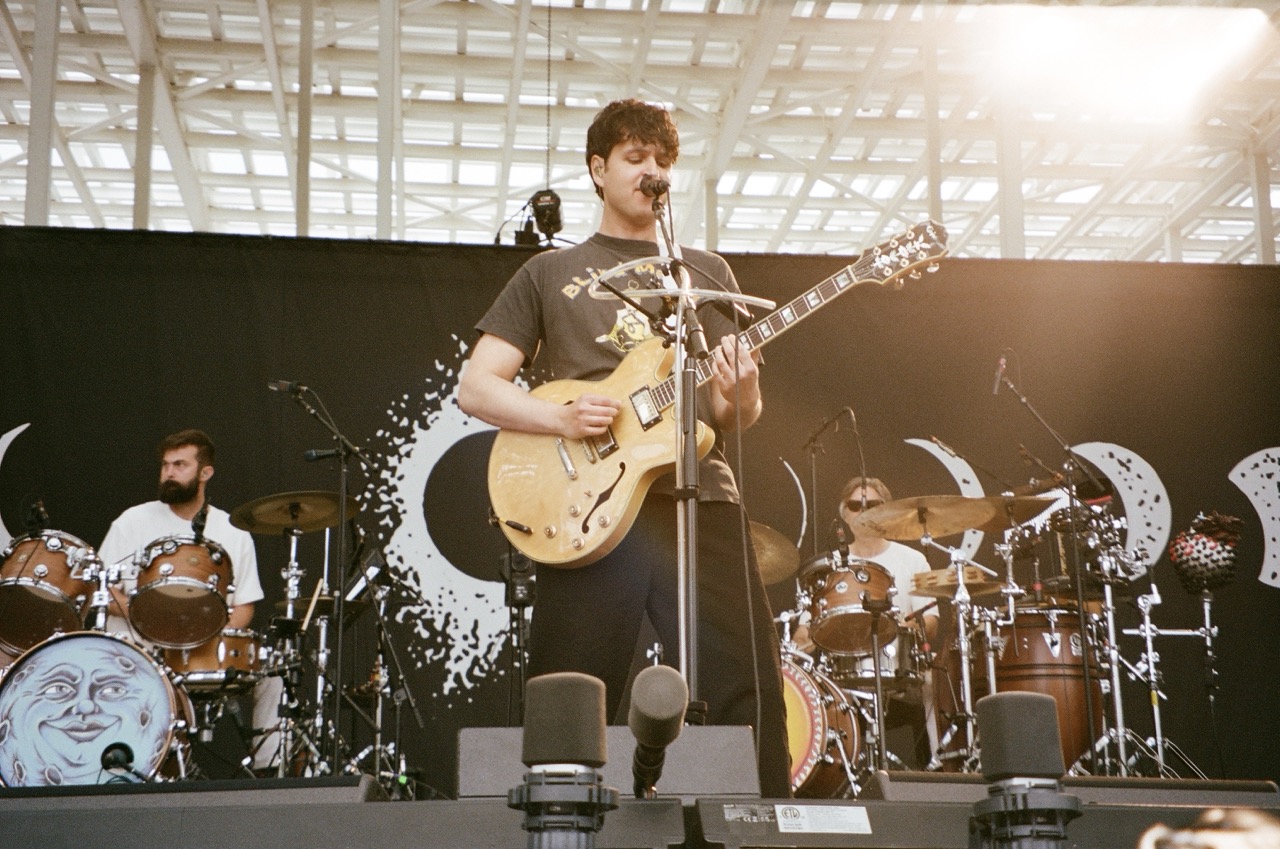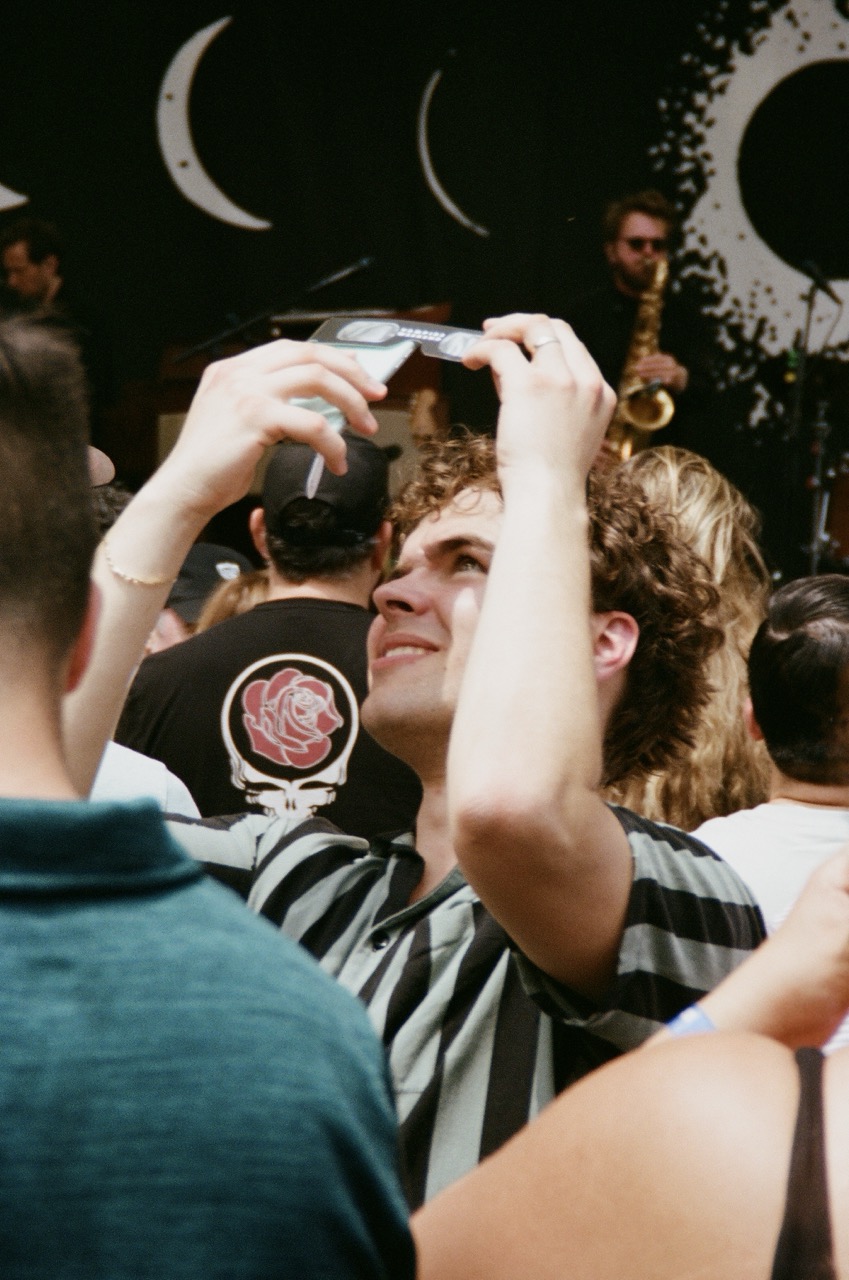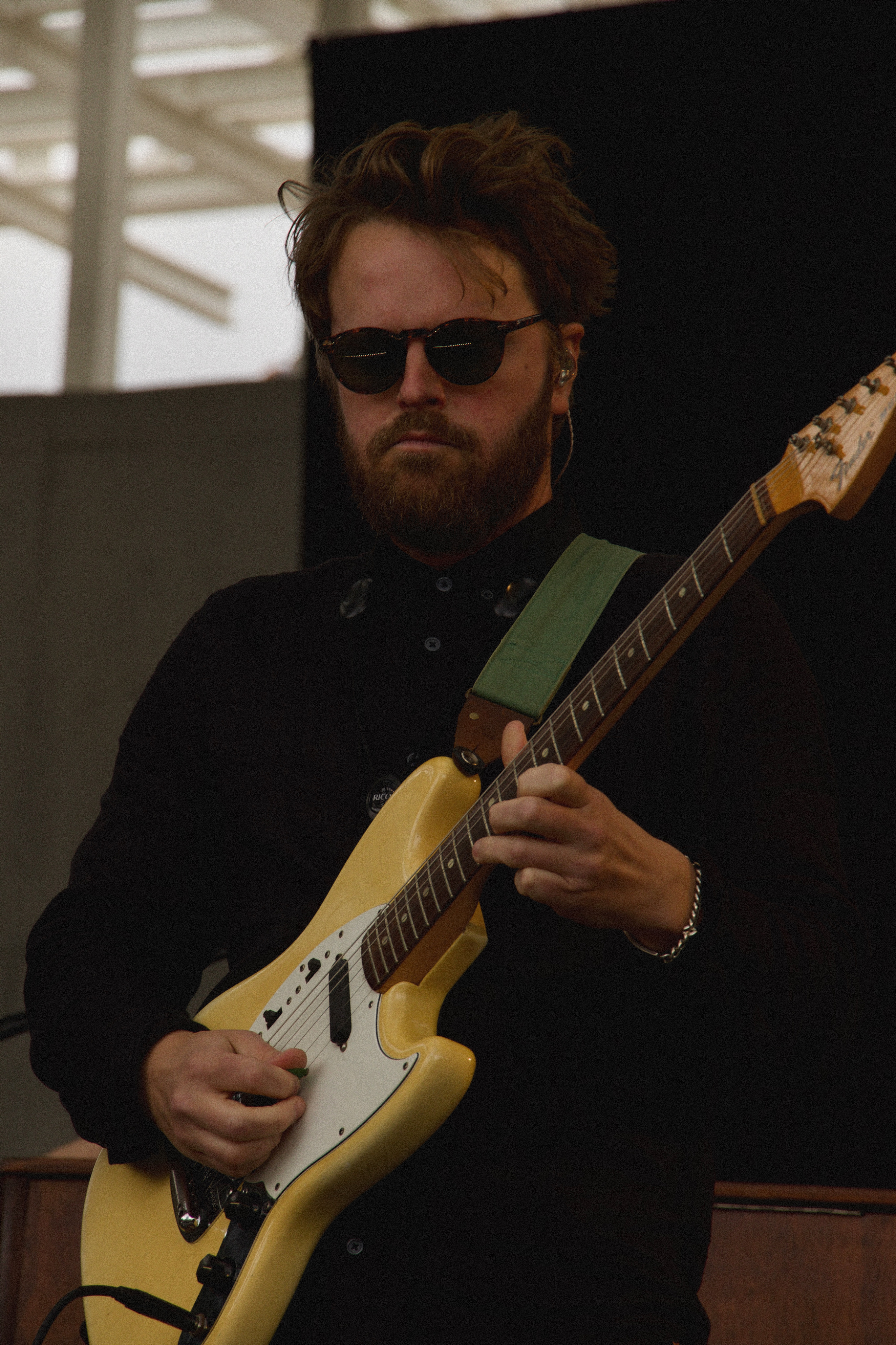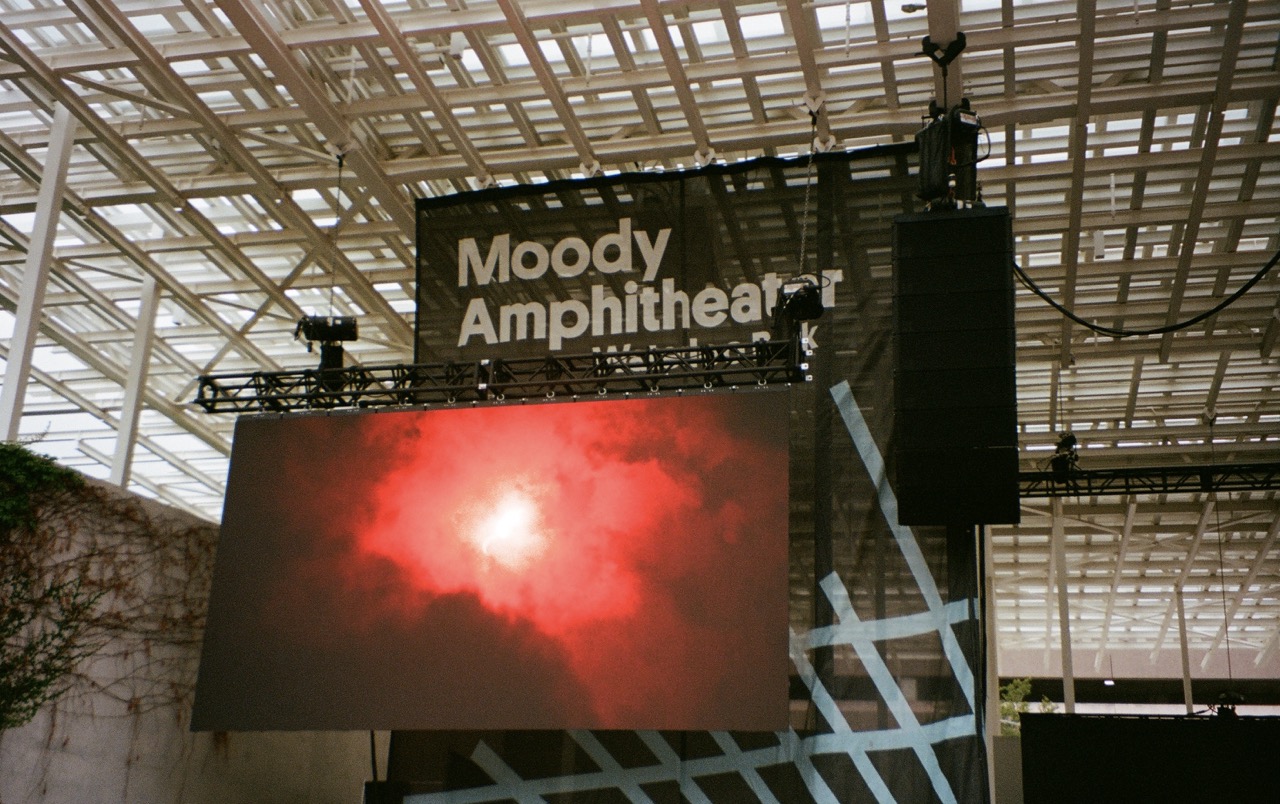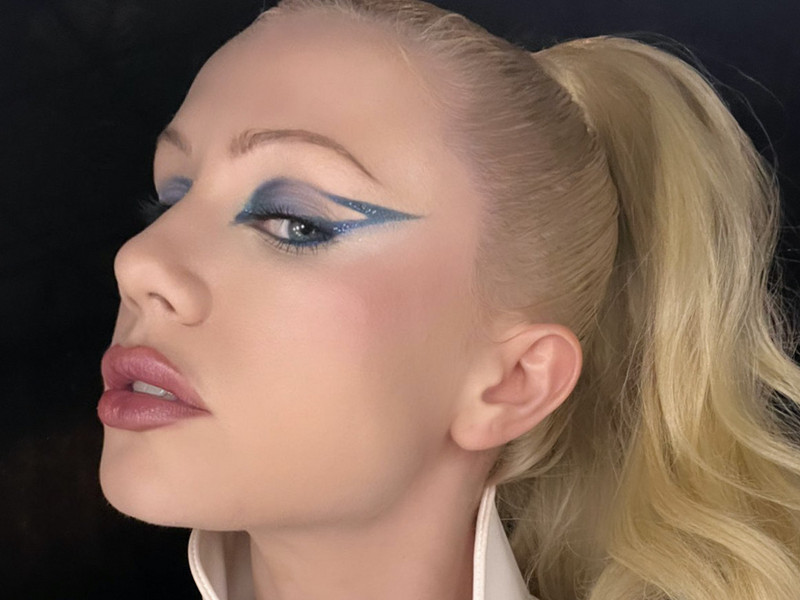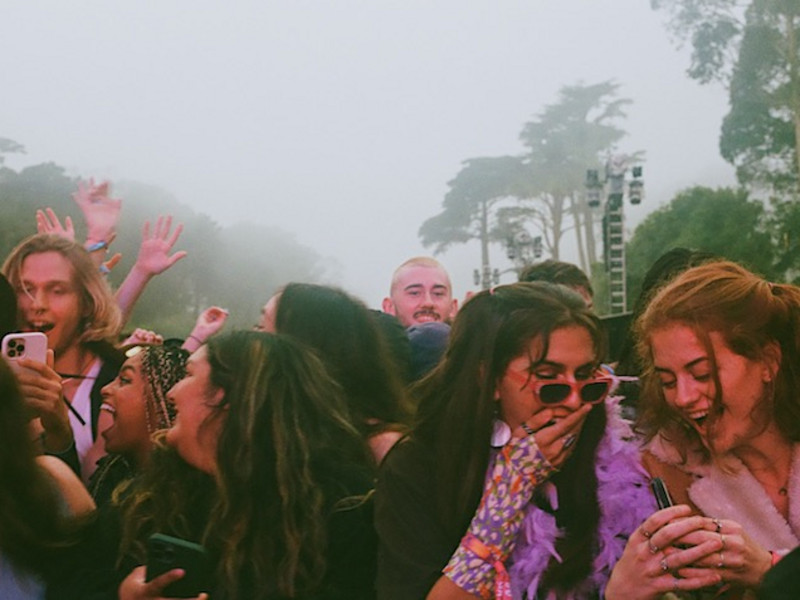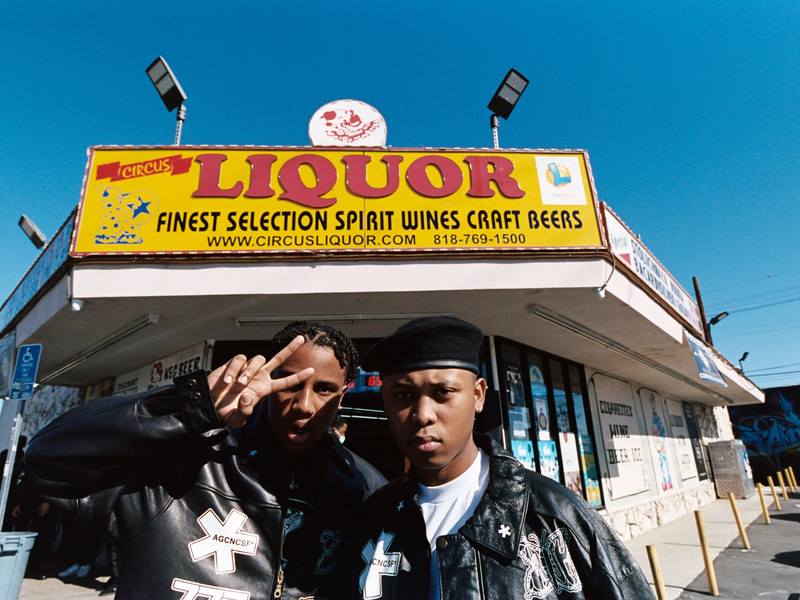It Feels Good to Stop Hating Something
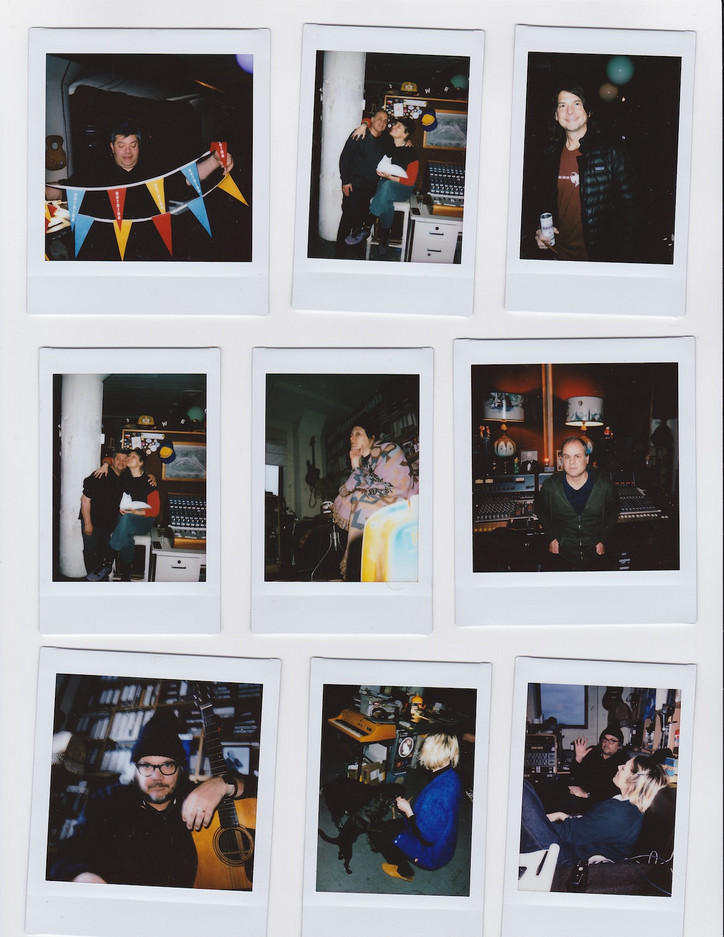
Morten Scholz— Hi Jeff. Nice meeting you.
Jeff Tweedy— Hi Morten. Likewise.
MS— Calling here from Copenhagen. I’ve seen you and Wilco perform here on several occasions, so I guess you know Copenhagen?
JT— Oh yes. Intimately. In the Uncle Tupelo days [Jeff’s first band active between 1987 and 1994] Copenhagen used to be our base for the European tours. We stayed in this freetown reminiscent of Christiania, and our rehearsal space was Loppen (a famous music venue in Christiania). We are looking forward to being back.
MS— Great. We’ll love having you. Let’s talk about your new book. This is your third book after an autobiography and a how to write a song DIY book—this book on the world’s 50 greatest by Jeff Tweedy. In the introduction you state that this probably should have been your first book and the one you were born to write. Could you please elaborate on that?
JT— When writing my first book and my second book I realized that probably my favorite thing to talk about in the whole world is other people’s songs. So in a lot of ways this should have gone first. Talking about other people’s music is a huge part of the way I make sense of the world.
MS— How did you set about writing the book? What came first — the list of songs or all the little stories from your life that flows through the pages?
JT— For a long time I have been writing down these little stories from my childhood and coming of age. I got to a point where there were quite a few of these and they made their way into the book as “rememorie” — little pieces of memories and remembering.
MS— Some of these memories tie very nicely into the given chapter on a specific song and others seem more loosely placed within the writing. How did that come about?
JT— It was a question of editorial sequencing. I’m not overly concerned with narrative, but much more interested in the sequencing of emotions. To me that is uniquely more alive than a clear narrative. I understand our need for a straight narrative, and I can appreciate it, but to me a series of emotions is way more lifelike and honest in regard to the actual lives we live.
MS— Please tell a little about the process of picking your favorite songs. There are some usual suspects such as songs by Patti Smith, Bob Dylan, Rolling Stones and The Beatles, but there are also quite a lot of more exotic choices. To me it is quite a statement that the first song in the book — the opener — is “Smoke on the Water” by Deep Purple. That is not a subtle opener by the lead singer of esteemed and critically acclaimed county band Wilco.
JT— I understand what you are getting at here. Smoke on the Water is of course a massive hit, and not a particularly academic choice for a best first song out of 50. But for me it has been monumental, and I want to stand by that fact.
MS— Going into the book I expected a kind of best songs cannon, but that’s not really the case, is it? You are on another mission here?
JT— Sure. I accept those kinds of lists — an academic list of good taste versus bad taste, picking the best among the best. But it’s an intellectual exercise trying to weigh what is ultimately weightless. That’s not what I’m trying to do here. I’ve tried to circumvent my intelligence. This is ultimately my very personal list of the 50 songs that have shaped me into the person I am today. Some of these songs qualify for a cannon, and others only make sense to me, because I happened to hear them at that exact time and place in my life.
MS— So it’s less 50 great songs, and more The Story of Jeff Through the Songs That Shaped Him?
JT— Ha. You could say that. But it is both. Because all the songs have had such a monumental impact on my life, and all the songs in the book are undeniably great songs.
MS— Were there always only these 50 songs or were there mora at one point and you edited it down to the final 50?
JT— There were a lot more. Once I did the first draft, I ended up with way more songs than I needed. From there it was a question of editing it down to 50. Scraping a song, but keeping a passage I liked, trying to find another suitable place for it to go. In that kind of way it was very much like song writing, stitching together the whole thing until you have a finished volume.
MS— And you even made room for a hate song or two.
JT— Right. Ha. I felt like we were getting to a point where the book could do with a little less fandom — a little less of me loving some other songwriter, it got to a point where it felt a little boring. And I took it out on Jon Bon Jovi. Here in the States, he is still massive, super huge. And it’s really not my thing. I felt it would be good for the overall balance with a little hate, a little mirth — and I’m positive that Bon Jovi’s self-esteem can handle the blow perfectly fine.
MS— And a love-hate — or maybe more correctly a used-to-hate-now-transformed-into-love song by ABBA.
JT— Sure. It’s a question of redeeming yourself or evolving, maybe also about getting more self-confident with age. I used to loath ABBA, because that is what serious musicians are supposed to do, but there is no denying the sheer power of an ABBA song. Now I love it, and every time some musician tells me they hate ABBA I reply that they should try writing an ABBA song. It’s really not easy – it’s a craft and it brings joy to the listener, and you have to honor that.
MS— In the book you write that “it feels good to stop hating something.”
JT— It surely does, right!
MS— When writing the book did you listen to the songs you picked as you wrote about them?
JT— As a general rule I didn’t. I have checked all quotations of lyrics out of respect for the song writers, but I tried not to listen to the songs before finishing the book, basing my writings on my memory. And even some false memories and proper misreading.
MS— Could you run through such a misreading for us?
JT— In the chapter about “Lucky Number” by Lene Lovich, my mom and I totally got it wrong. My mom — she was a brilliant woman but with a somewhat grim outlook on life — used to offer up this advice to me: “you are born alone, and you’ll die alone, so you might as well get used to being alone.” One day we saw Lene Lovich perform the track “Lucky Number” on a local TV music program. My mom instantly connected to hearing someone else singing “My lucky number is ONE”, and proclaimed it one of the best songs ever written, and in honesty maybe it isn’t. What we completely missed — and what I realized listening to the song after finishing the book — was that this little weird song eventually turns into a love song when Lena gets a new lucky number twice the size of one, namely two. So basically, it was a profound misreading of the song by me and my mother.
MS— But that’s how it is with memory, right? Sometimes you remember it wrong but it’s just as meaningful to you as a person.
JT— Yeah. And not only memory. Also interpretations. To me all interpretations are somehow “faulty” or wrong, because they get filtered through the observer and become their distinct interpretation. That’s the whole point, and therefore I’m kind of glad that the Lene Lovich misreading is in the final book.
MS— You have this sentence in the book that kind of leaped out of the pages when I read it. It’s a kind of definition of aspirational art. “It’s a few people of similar ages and mindsets – friends – allowing themselves to be vulnerable.” Is that the recipe for Wilco?
JT— it’s the recipe for any art centric band.
MS— OK. I guess we have a transition here. Let’s talk about the new Wilco album coming out. It’s called cousin. Why?
JT— It’s all about our place in the world, the feeling of belonging or not quite belongs. I'm a cousin to the world. I don’t feel like I’m a blood relation, but maybe I’m a cousin by marriage. It’s this feeling of being in it and out of it at the same time.
MS— And it was produced by the Welsh musician Cate Le Bon. How did that come about?
JT— We are longtime admirers of Cate’s work, and at one point we all met and improvised together at the Solid Sound Festival. It was a great experience, and we formed an immediate connection.
When time came and we had to get working on the new album, we made a very short list of people we wanted to work with as a producer. The list had one name. Cate’s. Luckily she accepted and we invited her to our Chicago Studio, The Loft, in 2022 where we began working on the album.
MS— Did Le Bon push you out of your normal comfort zone?
JT— She pushed us just the right amount. She insisted that we should take risks, repurpose our established strengths and challenge them to oppose habits, but at the same time staying true to whatever it is that makes Wilco Wilco.
A lot of the songs on our new album have been sitting around for quite some time - at least since we first met Cate in 2019. It was a Godsend to have someone with her sensibility to listen to it all with fresh ears and help rebuild and structure this record.
MS— Did Le Bon take the album in an — for Wilco — unexpected direction?
JT— I believe Cate took us in an icier and more nighttime-ish direction than anything we have done in Wilco before. The sound balances out nicely up against my own naturally warm singing voice and creates this kind of port-of-safety-quality that we haven’t really created on previous records.
MS— Is there a theme for the album?
JT— It's not a concept album per se, but all the songs are — I guess — all about human connectivity. Cate is very suspicious of sentiment, but she’s not suspicious of human connection. That’s what it’s all about. People connecting and disconnecting with other people.
MS— Are we talking positive connections or negative connections?
JT— We are accustomed to going from dark to light — I guess that is a Wilco trademark — and some of the songs are pretty grim, but the album definitely ends on a lighter note. On the last track — the disco-ish “Meant to Be” - we’re not quite sure whether connection is restored, whether it ever could be enough, but we see the sustaining power of trying to get closer together.
MS— So are you kind of debating with your mom's viewpoint — that we are all born alone and die alone, and therefore just as well can get used to being alone?
JT— You could say that. I totally get the feeling of being all alone in the world, but I’d like to believe that the pain is more about trying to be connected to other people when we fall short so often. Somewhere deep down there lies the immutable truth that all of us are related.
MS— That’s a beautiful note to end on. One final question. Are you happy with the record?
JT— Have you listened to it?
MS— Sure.
JT— What do you think?
MS— I think it’s great!
JT— We kind of agree.
